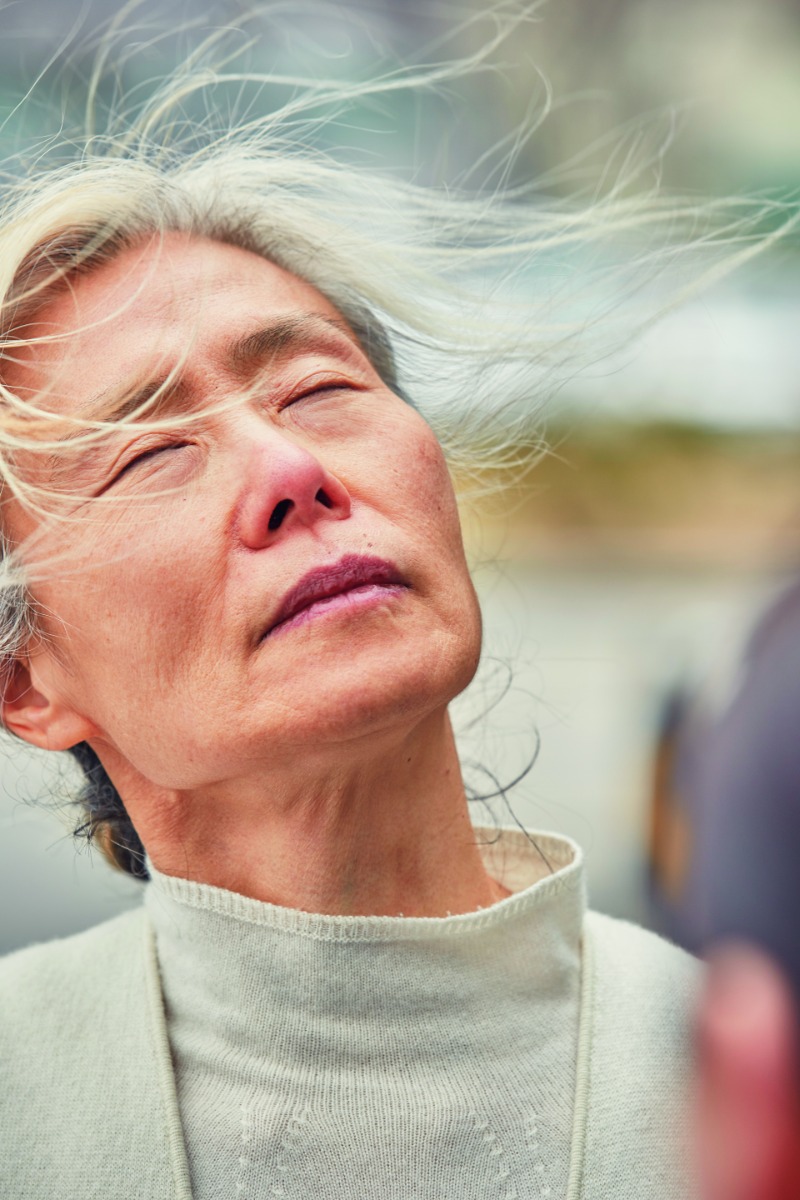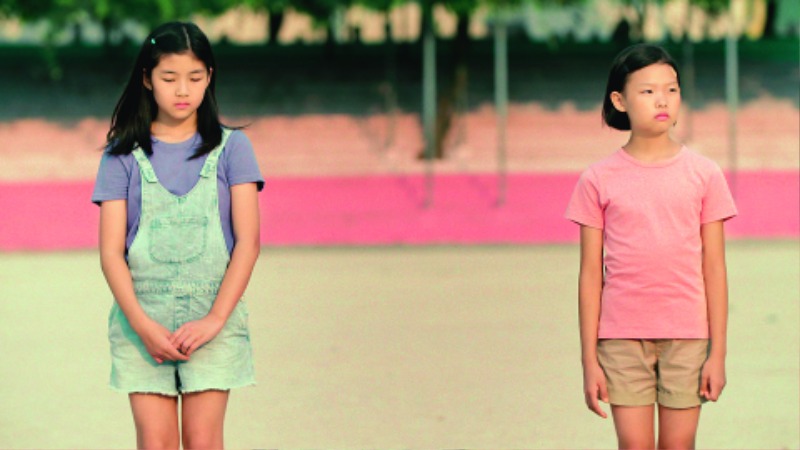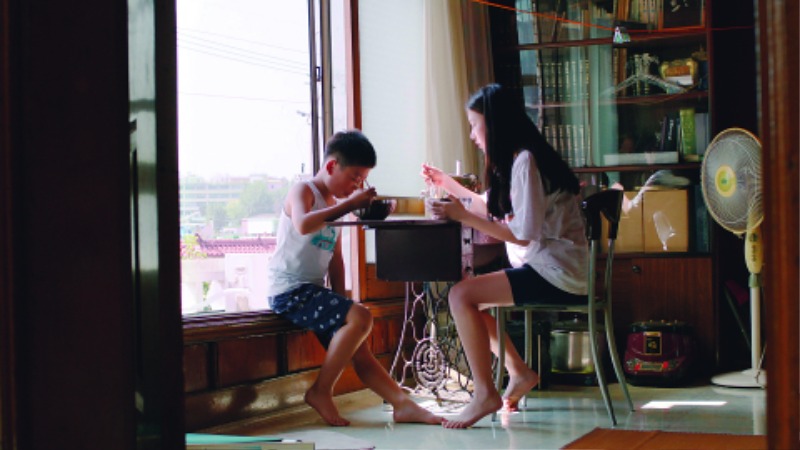Relatable characters are considered essential to the commercial success of movies. Lately, however, female directors are employing characters that would not normally garner widespread empathy and support. In doing so, they offer new perspectives on how society functions

In director Lim Sun-ae’s first feature, “An Old Lady” (2019), Ye Soo-jung plays 69-year-old Hyo-jeong, who is sexually assaulted and struggles to prove her case. It was the first Korean film to deal with sexual violence against an old woman.
Korean moviegoers in the 1970s witnessed a rush of “hostess films,” which dealt with women working in the adult entertainment industry. The popularity of “Heavenly Homecoming to Stars” (1974) and “Yeong-ja’s Heydays” (1975), based on namesake novels written by Choi In-ho and Cho Seon-jak, respectively, triggered the outpouring.
hile some of these films contended to present critical commentaries of reality, and were even acclaimed for their cinematic quality, their storylines seldom veered from the convention of depicting women as sexual s. The female characters were typically impoverished country girls who had come to the city, selling their smiles and their bodies to make a living. Although the filmmakers claimed their works mirrored real life, they rarely employed a female perspective. Thus, the overwhelmingly male viewpoint in these movies was no different from those in other genres.
These deep-rooted practices underwent a slow change over decades, eventually crystalizing into an irrevocable trend. Recent films about women have featuredan unfamiliar range of characters with a commanding presence.
“The World of Us,” which premiered at the 2016 Berlin International Film Festival, earned its director, Yoon Ga-eun, Best New Director awards in multiple contests. Aside from its cinematic brilliance, the film impressed the audience with groundbreaking content and subject matter. Until then, a story told from theviewpoint of an elementary school girl was a rarity in Korean film. The preconception was that moviegoers wouldn’t be interested in a child’s story. But childrenaren’t immune to adult-size sorrow and anguish, a fact that grownups tend to simply overlook or ignore. As the father of the main character, fourth grader Sun, dismissively asks, “What does a kid have to worry about?”
Little Girls
Sun tries to befriend her new classmates but is ignored. , she sees a flash of hope in Jia, a transfer who arrives in the middle of the semester. The two girlsbecome close during summer vacation, and Sun expects her next school year winll be much happier. But her assumption is completely shattered as Jia shifts towardthe classmates who had ostracized Sun.
The virtue of this film is that it doesn’t confine school bullying to attackers and victims, as is commonly done. Instead, “The World of Us” vividly conveys theemotional, not physical, pain that children can suffer. As a result, viewers realize that the human condition is universal to any society or group, regardless of age.
“An Old Lady,” director Lim Sun-ae’s first featurefilm, deals with an unexplored subject in Korean film:sexual violence against the elderly. The movie premiered at the 2019 Busan International Film Festival, and was invited to the Heartland and Amiens international film festivals, where it was praised for its subtle and poignant portrayal of a little-known issue.

“The World of Us” (2016), directed by Yoon Ga-eun, explores relationships among children from a child’s perspective. In her 2019 work, “The House of Us,” Yoon once again casts a thoughtful gaze on the world as seen through the eyes of children.
These female directors are expanding the realm of women’s narratives with their various expressive styles and subtle depictions of formerly neglected characters.

“Our Body” (2019), directed by Han Ka-ram, is about a young woman, who is inspired by another to take up running, restoring the strength to reinvent her life.
Elderly Women
Hyo-jeong, 69, is sexually assaulted by a male nursing assistant in his 20s while receiving treatment at a hospital. Her claim that she was violated is dismissed.Authorities choose to believe the hospital workers who insist the sexual encounter was consensual. Frustrated at the refusal of an arrest warrant, Hyo-jeong asks, “Wouldthe attacker have been arrested if the accuser had been a young woman?”
Before, little thought had been given to the position of elderly women as a social minority. The film coaxes audiences to expand their thinking about sexual violenceand preconceptions about women. When the detective investigating the case says Hyo-jeong’s outfit is “too good for an old woman,” she tells him that if she doesn’tdress well enough, people look down on her and pester her with brazen advances. “Do I look safe in this out-fit?” she asks the detective, revealing her everyday reality, where she needs to be defensive-minded even about what she wears. Ultimately, the film stresses that abandoning preconceptions is a prerequisite for grasping thetruth of an incident.
Hyo-jeong has a male friend with whom she shares a house. He is almost her only ally, but the film doesn’t pivot to send him into a fight for her honor. Instead, itsends Hyo-jeong on a path to justice by herself, upending the stereotype of an elderly woman needing a man to defend her or resolve her predicament.
Awareness of Desire
“Our Body” (2019), the debut feature by Han Ka-ram, into the way one woman is inspired by another. More significantly, it further raises the issue of desire in a provocative style.
Ja-young is a 31-year-old woman who has failed for eight years to pass the state exam for a high-level civil service position. At the outset of the movie, she is ditched by her boyfriend. Losing all hope and purpose in life, she wanders around until she happens to see another young woman, Hyun-joo, running by. Admiring Hyunjoo’s beautiful, healthy body, Ja-young joins her running club. The film’s interest in the young women’s bodies isn’t just another variation of the popular stereotypingof women’s looks, but a medium to explore their search for meaning in life. In the end, Ja-young recovers from hopelessness, realizing that she has been blindly pursuing social advancement and success as prescribed by other people. She acknowledges her own desire.

“The World of Us” (2016), directed by Yoon Ga-eun, explores relationships among children from a child’s perspective. In her 2019 work, “The House of Us,” Yoon once again casts a thoughtful gaze on the world as seen through the eyes of children.
Expanding Narratives
Yoon Dan-bi’s first feature film, “Moving On,” premiered at the 2019 Busan International Film Festival and won awards in four categories. That was only the start of a of accolades. The film received the Osler Best Feature Film Award at the 24th Toronto Reel Asian International Film Festival, where the jury was impressed by “debut director Yoon Dan-bi’s depiction of the delicate and complex dynamics of a multi-generational family.” It said, “Their love is told through small gestures and quiet but poignant scenes of joy, change and grief.” The film went on to win the International Federation of Film Critics (FIPRESCI) Prize for Best Film at the 38th Torino Film Festival and the New Talent Award given to notable young Asian directors at the 17th Hong Kong Asian Film Festival.
The film’s protagonist, Okju, is a teenage girl who has a financially strapped father and a little brother. When the film begins, they leave their home and movein with her ailing grandfather, soon to be joined by her aunt. Amid the ups and downs of ordinary life unfolding, a special emotional bond is forged in the multi-generational household. The film captures the entwined moments of the young siblings and adults, as if the decades between them have been erased, the past and present overlapping.
While the aforementioned films question social stereotypes and preconceptions with a serious tone, “Moving On” appeals to the audience with the story of a girl’s coming of age and the life of an ordinary family. Overall, these female directors are expanding the realm of women’s narratives with their various expressive stylesand subtle depictions of formerly neglected characters.
Nam Dong-chulProgram Director, Busan International Film Festival